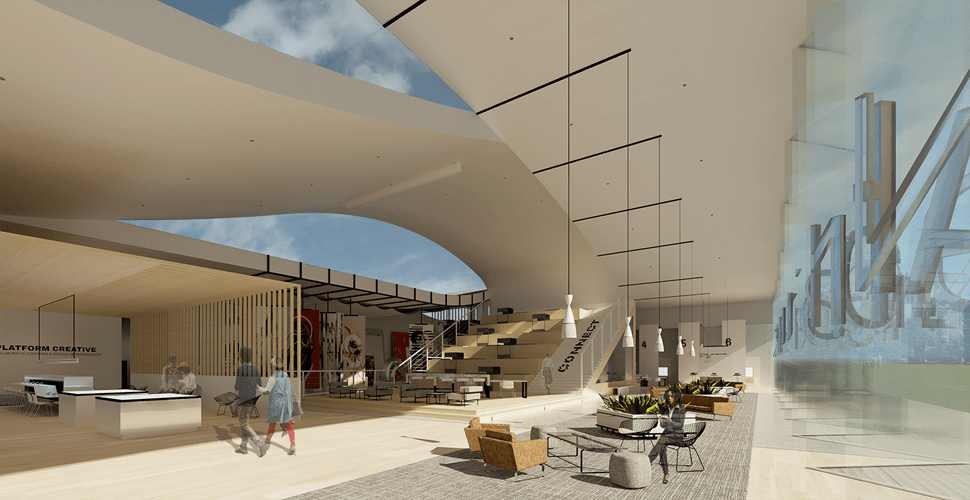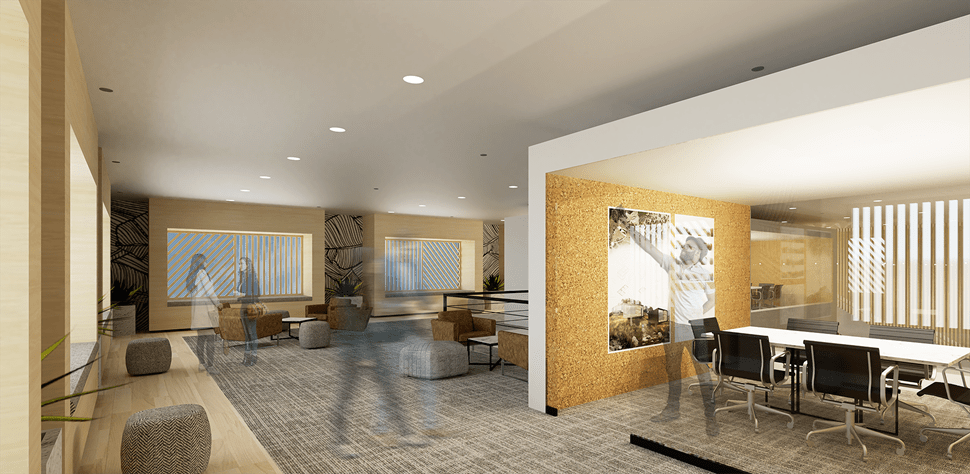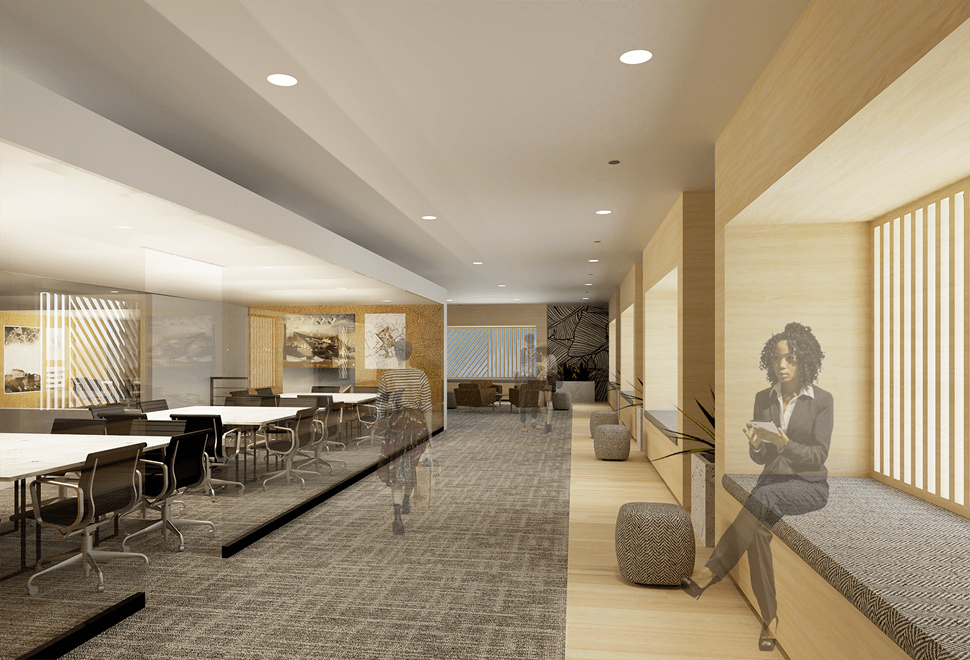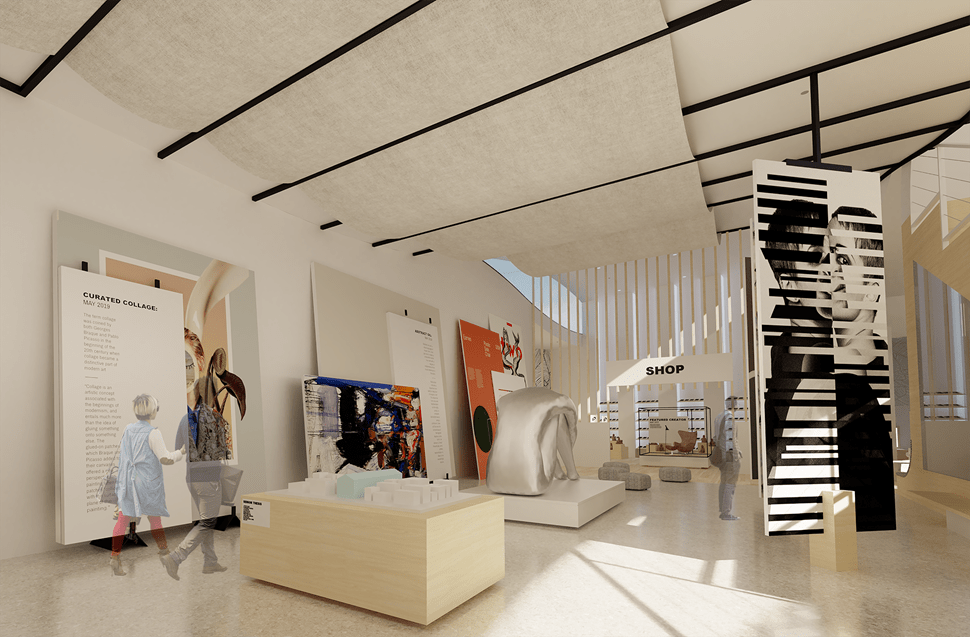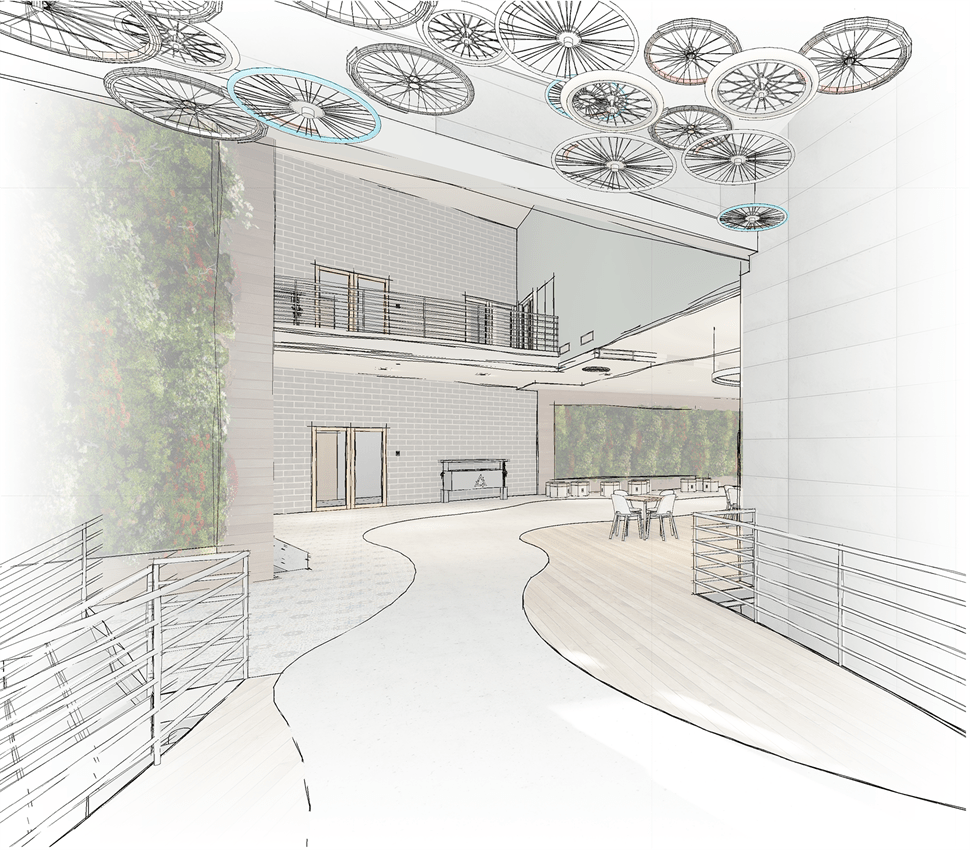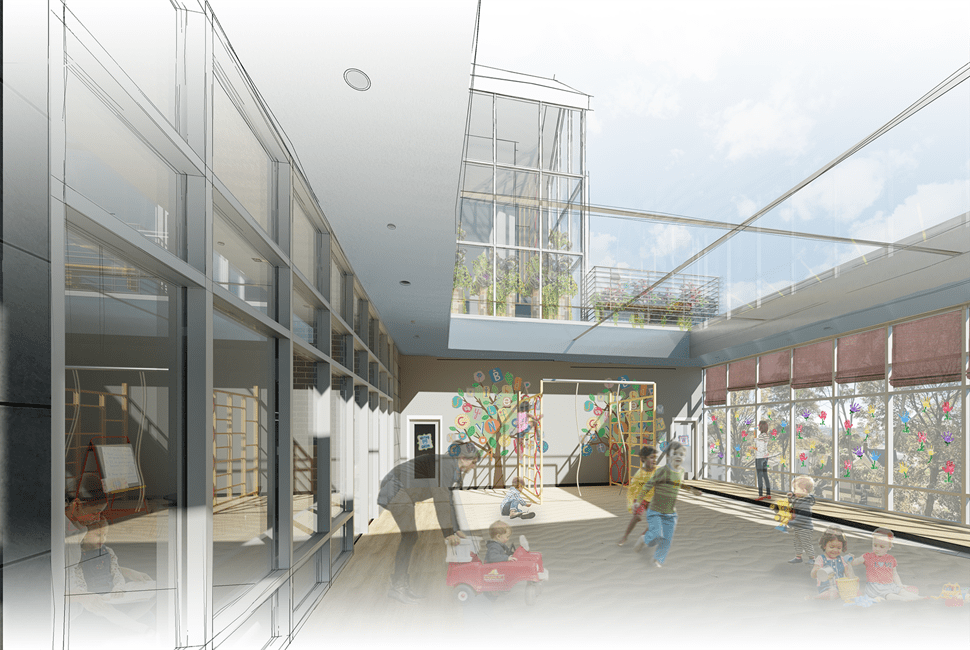-
Program Overview + Philosophy
Both an art and a science, interior architecture combines aesthetics with pragmatic solutions to support the construction of appealing, high-functioning interior environments.
Under the guidance of our highly qualified and supportive faculty, develop the skills of a professional designer, combining your creativity and eye for design with keen problem-solving skills. The field of interior architecture is multifaceted. At Endicott, receive a well-rounded education and comprehensive career training before you graduate through our unique blend of rigorous classroom learning, real-world internship experiences, and eye-opening travel opportunities.
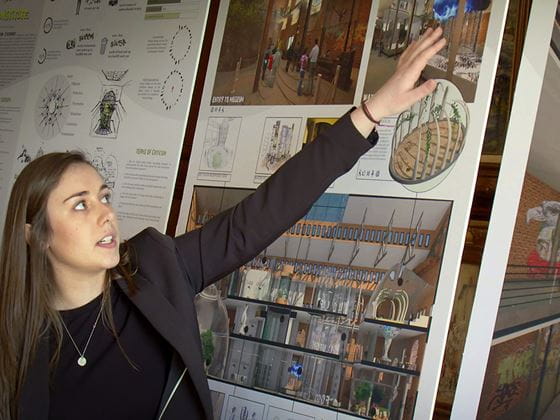
-
Curriculum
Curriculum Requirements - Total Credits Required: 129
First Year - Credits: 32
- Individual and Society General Education Requirement (Cr: 3)
-
ART 101 - Visual Art and Cultural Values I: Prehistory to c. 1310 (Cr: 3)
-
ART 102 - Visual Art and Cultural Values II: Early Fourteenth Century to the Present (Cr: 3)
-
ART 105 - Drawing and Composition I (Cr: 3)
-
ENG 111 - Critical Reading and Writing I (Cr: 3)
Satisfies the Writing Designated Core requirement.
-
ENG 112 - Critical Reading and Writing II (Cr: 3)
Satisfies the Writing Designated Core requirement.
-
IA 101 - Introduction to Interior Architecture (Cr: 3)
-
IA 102 - Studio I: Residential Interior Environments (Cr: 3)
-
ARC 103 - Media I: Architectural Drafting (Cr: 3)
-
ARC 104 - Media II: Architectural Delineation (Cr: 3)
-
INT 100 - Internship I (Cr: 2)
Second Year - Credits: 35
- Literary Perspectives General Education Requirement (Cr: 3)
- Quantitative Reasoning General Education Requirement (Cr: 3)
-
ART 217 - History of Architecture and Interior Design I (Cr: 3)
-
IA 201 - Interior Architecture Studio II A (Cr: 3)
-
IA 202 - Interior Design Studio II B: Complex Work Environments (Cr: 3)
-
IA 207 - Construction Materials I: Materials and Specifications (Cr: 3)
-
IA 208 - Media III: Visualization and Ideation Delineation (Cr: 3)
-
IA 209 - Construction and Materials II: Building Systems (Cr: 3)
-
IA 220 - Electronic Media I (Cr: 3)
-
IA 230 - Electronic Media II (Cr: 3)
-
IA 234 - Building Codes and Standards (Cr: 1)
-
IA 247 - Environmental Psychology (Cr: 2)
-
INT 200 - Internship II (Cr: 2)
Third Year - Credits: 32
- Global Issues General Education Requirement (Cr: 3)
- Science and Technology General Education Requirement (Cr: 3)
- Values and Ethical Reasoning General Education Requirement (Cr: 3)
-
ART 313 - History of Architecture and Interior Design II (Cr: 3)
-
IA 301 - Advanced Interior Architecture Studio III A (Cr: 3)
-
IA 302 - Interior Architecture Studio III B: Health Care and Institutional Design (Cr: 3)
-
IA 307 - Advanced Lighting Design Studio (Lighting Studio) (Cr: 3)
-
IA 308 - Construction and Materials IV- Contract Documents Studio (Cr: 3)
-
IA 320 - Portfolio (Cr: 2)
-
IA 322 - Professional Practice (Cr: 3)
-
ART 351 - Design Theory and Research Seminar (Cr: 3)
Fourth Year - Credits: 30
- World Cultures General Education Requirement (Cr: 3)
- General Education Electives (Cr: 9)
-
IA 480 - Semester Internship (Cr: 12)
-
IA 489 - Senior Research (Cr: 3)
-
IA 491 - Senior Capstone (Cr: 3)
Diversity, Equity, & Inclusivity Requirements
Students take the following:
- DEI course attribute at any level
- DEI course attribute 200 level and above
-
AET 201 - Populations, Assessment, and Intervention (Cr: 3)
Learning Outcomes
Upon completion of the interior architecture program, students will:
- Demonstrate the critical inquiry and analysis skills needed to engage in intellectual discourse within the art fields.
- Demonstrate knowledge of and competency with computer technology as it is used in the artistic processes.
- Demonstrate knowledge of the principles of design and color in 2-dimensional and 3-dimensional representation.
- Experience the relationship of academic studio practices to professional applications.
- Discuss and write about the historical context for the visual arts.
- Communicate effectively in written form within the conventions of the discipline.
- Demonstrate an ability to apply human factors in context to residential and commercial design, including programming, environmental control systems, anthropometrics, ergonomics, proxemics and Universal Design.
- Demonstrate a familiarity with research theories and methodologies related to interior design.
- Demonstrate an understanding of the business practices of interior design, including project management, ethics, communication, codes, and health, safety and welfare.
- Display knowledge and skills in the use of basic through advanced tools, techniques, and processes sufficient to work from concept to finished product.
- Apply the elements and principles of design.
- Apply sophisticated use of color theory and cultural context.
- Clearly and concisely articulate design concepts and solutions to engage in intellectual discourse within the discipline.
- Demonstrate willingness to go beyond original parameters of assignment, introducing new materials and forms, including tackling controversial topics.
- Discuss and present an awareness of the personal creative process.
View academic catalog and learning outcomes -
Internships and Careers
An Endicott education means you'll graduate with a degree and a resume.
Whether you pursue graduate school right away or embark on your career after graduation, your time at Endicott will prepare you for the next step. Take a look at what our graduates have been up to lately.
Recent Internships
- Gensler
- Perkins + Will Architects
- Winter Street Architects
- Bergmeyer Architects
- Steffian Bradley Architects
Alumni Employment
- IA interior architects
- Perkins + Will Architects
- SMMA Architects
- Stefura Associates
- Michael Kors (retail design)
Graduate School Acceptances
- Massachusetts Institute of Technology
- Boston Architectural College
- School of the Art Institute of Chicago
- Frank Lloyd Wright School of Architecture
- Savannah College of Art + Design
Fifth Year M.A. in Interior Architecture
Do you want to pursue interior architecture beyond your undergraduate study? The interior architecture major at Endicott is a four-year BFA program, with the option to continue for a fifth year and obtain a Master of Arts in Interior Architecture.
Accreditations
Endicott's interior architecture program leading to the Bachelor of Fine Arts in Interior Architecture is accredited by the Council for Interior Design Accreditation, www.accredit-id.org, 206 Grandville Avenue, Suite 350, Grand Rapids, MI, 49503.
The CIDA-accredited program prepares students for entry-level interior design practice, for advanced study, and to apply for membership in professional interior design organizations. The Bachelor of Fine Arts in Interior Architecture granted by Endicott College meets the educational requirement for eligibility to sit for the National Council for Interior Design Qualification Examination (NCIDQ Exam). Click here for more information about NCIDQ Exam eligibility.
The Bachelor of Fine Arts in Interior Architecture and Master of Arts in Interior Architecture are also fully accredited by the National Association of Schools of Art and Design (NASAD).



